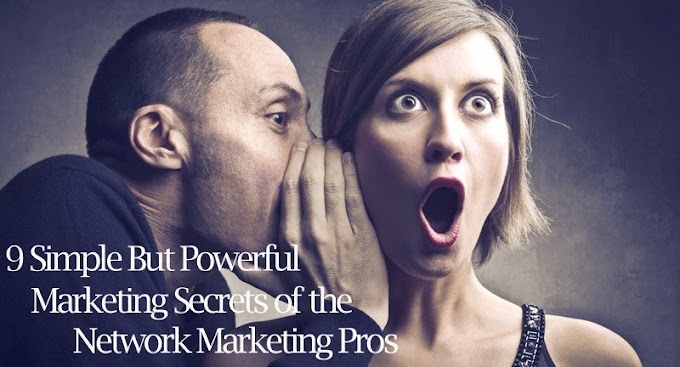How Mobile-First Connections Drive Local Business
Understand what people like about shopping locally and how mobile helps people connect more to neighborhood small businesses.
Only a few years ago, people connected with their local businesses solely at physical store locations. Today, more than 1.6 billion people on Facebook are connected to a small business,1 making “corner stores” a vital part of our everyday community online. At least once a week, nearly 2 in 3 people on Facebook visit the page of a local business or event.2 This burgeoning online community helps people and brands establish and maintain connections, linking them and their surrounding communities. Mobile devices make these connections possible anywhere, at any time.
o understand what this means for marketers, we studied Facebook data and commissioned a survey through Factworks (third-party international market research and analytics company) of more than 6,000 local businesses and over 10,000 people in the US, UK, Germany, France, Italy, Spain, Poland and Canada. Our goal was to learn more about the challenges and opportunities people find when shopping at local businesses. For this study, we defined a local business as one that isn’t part of a chain, franchise or non-profit and isn’t purely online, but has fewer than five store locations in a single market.
o understand what this means for marketers, we studied Facebook data and commissioned a survey through Factworks (third-party international market research and analytics company) of more than 6,000 local businesses and over 10,000 people in the US, UK, Germany, France, Italy, Spain, Poland and Canada. Our goal was to learn more about the challenges and opportunities people find when shopping at local businesses. For this study, we defined a local business as one that isn’t part of a chain, franchise or non-profit and isn’t purely online, but has fewer than five store locations in a single
market.
When determining whether people prefer to shop online or offline, the differences often depended on a person’s affinity for online shopping. Those who prefer to shop at local stores cite liking that goods are immediately available and close by, and that there are no shipping costs, again touching on values such as price and convenience. Those who prefer to shop online cite liking the option to shop from home, at any time of the day, and the option to compare prices. One third of people surveyed said they believe local shops are more expensive than chain stores and online shopping.
TOP REASONS PEOPLE GIVE FOR THEIR SHOPPING CHOICE

- I like when goods are immediately available
- I like goods that are close by to me
- I don’t have to pay shipping costs

- I don’t have to leave the house
- I’m not limited to shopping during store hours
- I can compare costs easily and find lower prices
How does mobile change people’s behaviors?
While people’s reasons for shopping locally vary, one thing is clear—they still expect to connect with businesses online, particularly through mobile devices.
Having a mobile strategy is crucial for both attracting new customers to a local business and retaining existing customers.
How can local businesses adapt to shifting expectations?
So, how do local business owners view this shift and how is it impacting their marketing efforts? While local business owners recognize the importance of having an online presence, not all have actually adopted mobile marketing in their planning.
With less than half of local businesses optimizing their marketing for mobile, marketers have a unique opportunity to help bridge this gap and reach more of their communities.
How are mobile-first shoppers local ambassadors?
Today’s “corner store” reaches beyond its local neighborhood. Mobile makes it easy for people to support small businesses wherever they are.Of all people surveyed, 66% use their smartphones to discover new local businesses and events while they’re in a new or unfamiliar area.
People surveyed who use mobile as their primary device were also significantly more likely to indicate they connect with local businesses across all activities. For example, surveyed mobile-first shoppers were 1.54x more likely to say they write recommendations and reviews for products and services offered by local businesses.10 Mobile devices allow for these increased connections between people and local businesses. Brands become more easily accessible from any location.
Increasingly, mobile-first shoppers offer an opportunity to create online conversation and commentary around a local business and its products or services. They may even be “early adopters”—customers willing to test new products and respond to special offers, last minute sales and deals, especially when these are offered by a nearby business that they trust. Recognizing the value of these organically-grown, local “brand ambassadors” and the best way to engage with them, helps build more meaningful connections.
Across all countries surveyed, people who use their mobile as their primary device are1.37Xmore likely to use Facebook to find out about pop-up shops or events in their local area.
What it means for marketers

Promote trust in your brand.
Our research shows that trust and security are two of the main reasons people cite for shopping locally, and neighborhood businesses can uphold a brand that is trusted within their community. Add personalization to your marketing campaigns, connect to local community initiatives and engage with customers who post on your Facebook business page.

Optimize your marketing for mobile.
When building marketing strategies, make sure people can access your content on any device, from any location. Promote Facebook posts using geo-targeting to reach people by location or region, to reach your intended audience.

Value mobile-first shoppers.
Study shows that mobile-first shoppers are engaged and enjoy writing recommendations and reviews for local businesses. Embrace these “local brand ambassadors” by employing a loyalty reward system and ensuring you continue to engage them in communications.































0 Comments
Thank You For Visit And Commenting In This Blog.
Stay Home Stay Safe.
Wish You Wellth.
+918282822858